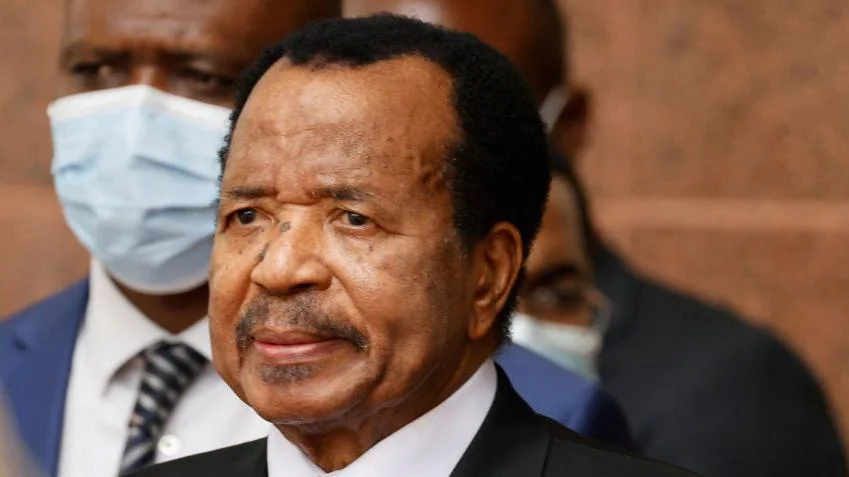Cameroonian President Paul Biya was officially sworn into office on Thursday. His inauguration follows a fiercely disputed election that led to several days of deadly protests across the nation. The 92-year-old leader, now beginning his eighth term, called for calm and promised to restore national order.
Biya Condemns Incitement of Violence
President Biya used his address to appeal directly to the public. He specifically called out external agitators, stating, “I appeal to everyone’s sense of responsibility.”
He issued a stern warning to those attempting to sow discord:
“I’m addressing all those who are working to incite hatred and violence in our country, particularly some of our compatriots in the diaspora.”
Biya stressed the danger of internal conflict. “Cameroon does not need a post-election crisis with potentially dramatic consequences, as has been seen elsewhere.”
Opponents accuse Biya of rigging the election and hold him responsible for the country’s longstanding problems. International criticism has been widespread regarding the violent crackdown by security forces on the demonstrations.
Contested Results and Casualty Figures
The world’s oldest ruler took his oath of office at the parliament building in the capital, Yaounde. Residents described the city as heavily militarized and partially deserted during the ceremony.
The country’s top court declared Biya the winner of the October 27 election with 53.66% of the vote. His main challenger, Issa Tchiroma Bakary, a former ally, secured 35.19%.
Casualty figures remain disputed. Data compiled from two United Nations sources estimates that 48 civilians were killed during the protests. Conversely, the government has publicly stated that at least five people died.
Long Reign and National Challenges
Biya first took power in 1982 following the resignation of Cameroon’s first president. He has ruled the nation since then, securing his long tenure after a constitutional amendment in 2008 eliminated term limits.
In his inauguration speech, he vowed to remain faithful to the Cameroonian people. He promised to work toward a “united, stable and prosperous” country. He blamed the unrest on irresponsible politicians and the diaspora.
His nearly half-century in power presents a mixed legacy. The nation faces various issues, including armed insurgencies in both the north and west. A stagnant economy has also fueled widespread disillusionment among young people.




















